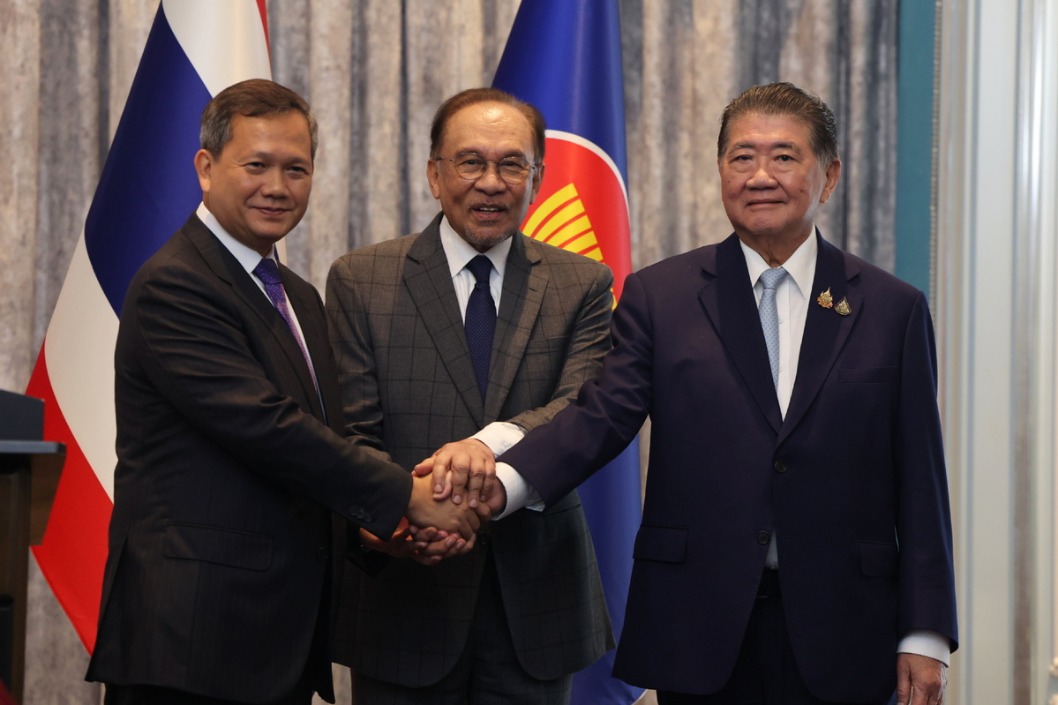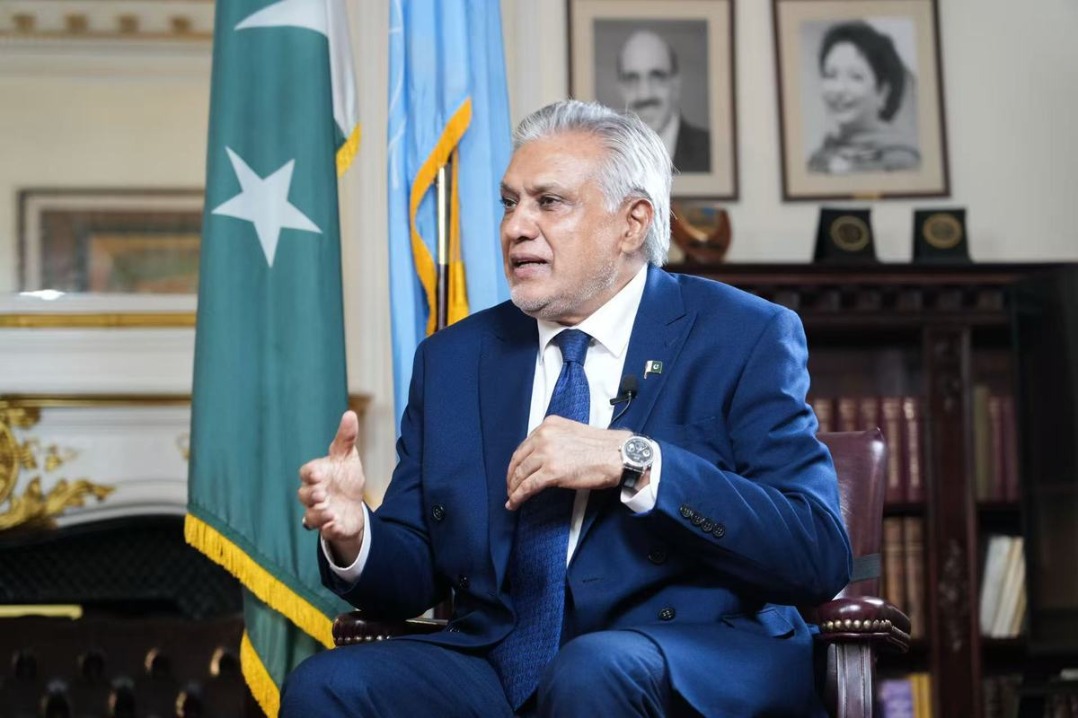EU-US deal triggers concerns in Europe
Trade accord lowers levies, but critics slam it as 'lopsided' and 'unsustainable'


A trade deal reached on Sunday between the United States and the European Union has sparked controversy among European officials, businesspeople and analysts — despite both sides hailing it as a step toward restoring "trade balance "and promoting fairer commerce.
At the heart of the debate is the deal's asymmetry: The US will lower tariffs on EU goods to 15 percent, while the EU has agreed not to impose additional tariffs on US products.
French Minister for European Affairs Benjamin Haddad described the agreement as "unbalanced", though he acknowledged it would "bring temporary stability to economic actors threatened by the escalation of American tariffs".
German Chancellor Friedrich Merz said, "We have thus managed to preserve our fundamental interests, even if I would have wished for more relief in trans-Atlantic trade."
Italy's Prime Minister Giorgia Meloni said the agreement "ensures stability" and that the 15 percent tariff level is "sustainable", especially if it is not added to previous duties.
Olivier Blanchard, a Robert Solow professor of economics emeritus at the Massachusetts Institute of Technology, called the agreement "completely unequal", saying the "asymmetric 15 percent tariffs are an EU defeat".
"When the law of the jungle prevails, the weak have little choice than to accept their fate," he wrote on X. "But Europe could potentially have been strong, either alone or in a coalition with others. It would have had to be ready for stormy waters. But it would have gotten a better deal in the end and sent a strong message to the world. An opportunity lost."
Broader interests
Bernard Dewit, chairman of the Belgian-Chinese Chamber of Commerce, voiced concern over the 15 percent baseline US tariff on EU goods, "particularly in light of Europe's broader economic and trade interests".
"Such a move risks escalating trans-Atlantic trade tensions and could undermine the stability and predictability that European businesses rely on," he told China Daily.
"European exporters, including many in Belgium, operate in highly integrated global supply chains. The imposition of a blanket tariff will inevitably increase costs, reduce competitiveness and possibly prompt retaliatory measures — ultimately hurting consumers and small- and medium-sized enterprises on both sides of the Atlantic."
Dewit urged Europe to further diversify its trade relationships. "Strengthening ties with dynamic markets such as China, ASEAN, and Africa becomes increasingly strategic," he said.
Bernd Lange, chair of the European Parliament's Committee on International Trade, described the US-EU deal as "lopsided".
"My first assessment: not satisfactory," he wrote on X. "Concessions have clearly been made that are difficult to accept. Deal with significant imbalance."
According to the published details of the agreement, the EU has pledged to purchase $750 billion worth of US energy and commit an additional $600 billion in US investments.
The scale of the deal has left many European analysts stunned. Qin Yan, a principal analyst at ClearBlue Markets in Norway, told China Daily that every energy market expert she is talking with is busy calculating how much US energy the EU would need to buy to reach such a harsh number.
Clyde Russell, an Asia commodities and energy columnist for Reuters, noted: "Putting together the value of EU imports of US crude oil, LNG and metallurgical coal gives a 2024 total of around $64.55 billion.
"This is about 26 percent of the $250 billion the EU is supposed to spend on US energy a year under the framework agreement."
Qin likened the deal to "visiting a small cafe around the street corner and booking a banquet big enough for 1,000 tables of guests".
"My concern is that the commitment to US energy purchases should not undermine the EU's climate goal," she said.
































